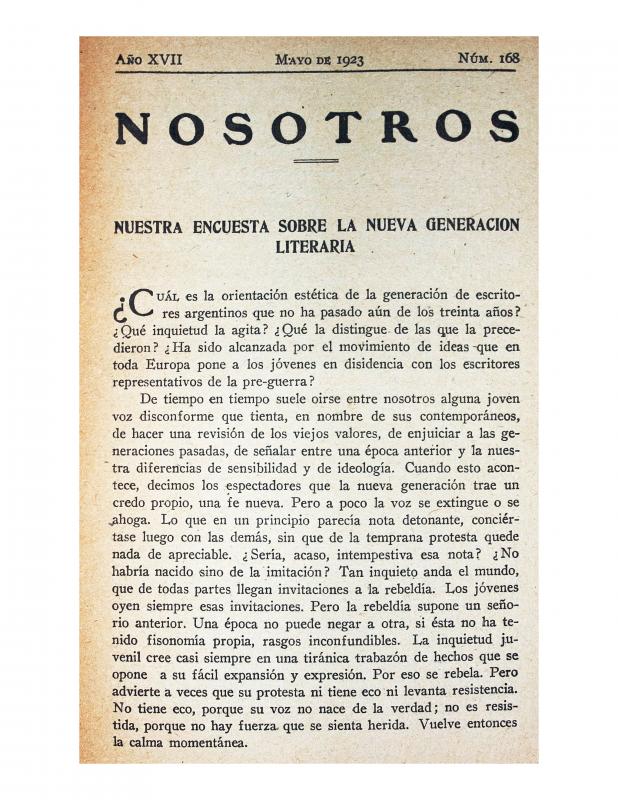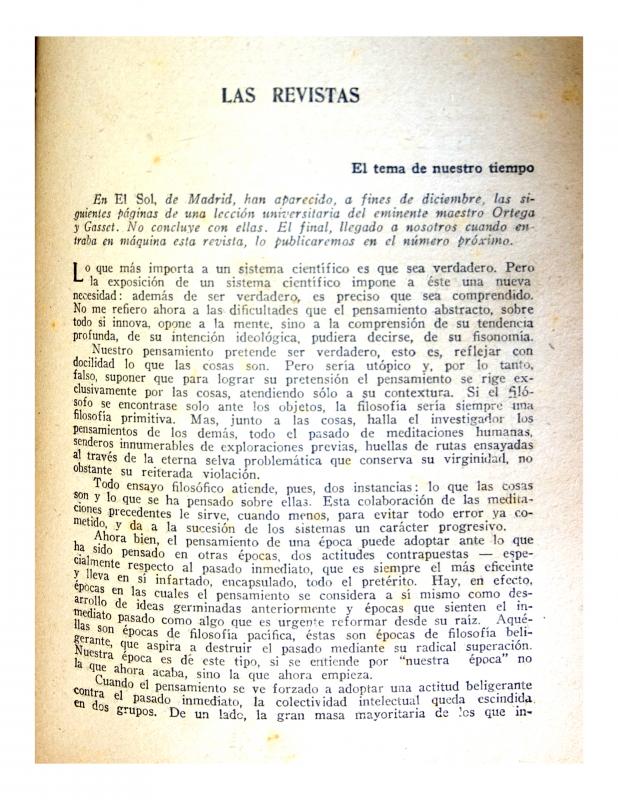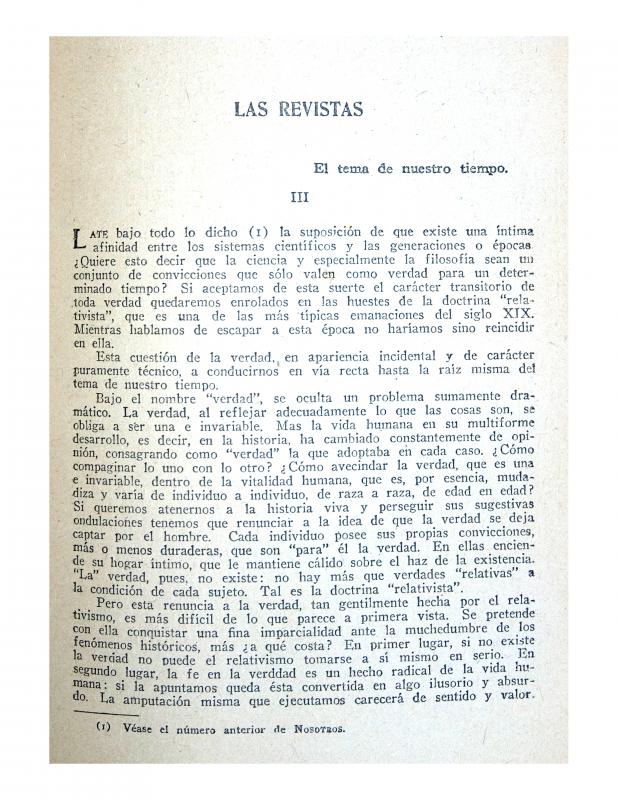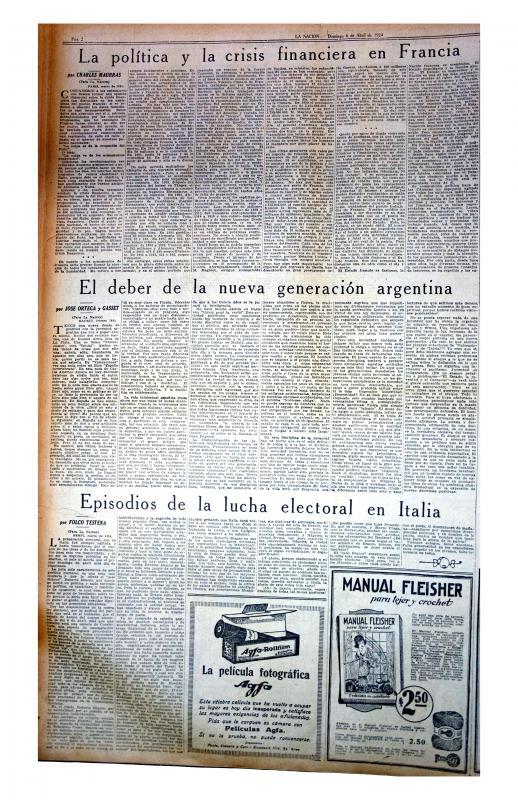The Nosotros [We] journal,founded by Alfredo Bianchi and Roberto Giusti, and published between the years 1907–43, was one of Argentina’s most important cultural journals, in addition to enjoying a great circulation in all of Latin America. Indeed, the publication sanctioned both writers and artists.
The Nosotros journal opinion poll, titled “Nuestra encuesta sobre la nueva generación literaria” [Our survey on the new literary generation] (see document 761283), takes the concept of new generation formulated by Spanish philosopher José Ortega y Gasset. This concept was revealed through “El tema de nuestro tiempo” [The Subject of Our Times] (1923), an essay published by El Sol [The Sun] (Madrid) and immediately reproduced by the Nosotros journal (Buenos Aires) in its 165 and 166 numbered editions (see documents 743426 and 743439). In this way, the above-mentioned magazine echoed that which Ortega y Gasset perceived as the main trait of his own historical moment: the emergence of a new generation that opposed ideas of the preceding one. Without a doubt, at the moment that the poll was formulated, Nosotros also realized that, near the end of 1921 in the local literary world, this confrontation between two generations was already noticeable throughout the activities displayed by the Argentinean Ultraist group.
Following this survey and also the publication of other writings by Ortega y Gasset, such as “Generación contra generación” [Generation Against Generation] (see document 743402) and “El deber de la nueva generación argentina” [The Duty of the New Argentinean Generation] (see document 743390), both written in 1924, the new generation identified itself with the group of writers linked to the 1920s literary renewal and, in particular, by means of the vanguard activities during the second half of that decade.
Jorge Luis Borges’s (1899–1986) response to the poll is important because at the moment it was published, he had already positioned himself to head the Ultraist group. Being its advocate and main theoretician, Borges had sustained the need to break with the literary tradition of his time, in particular with the epigones of Rubén Darío’s modernism. After a very carefully thought-out strategy behind the launch of Ultraism in Buenos Aires—which comprised articles in Nosotros and in the periodical Diario Español [Spanish Diary] in 1921, as well as in the magazines Prisma [Prism] and Revista Mural [Mural Journal] (1921–22) and Proa. Revista de renovación literaria [Bow. Literary Renewal Journal] (1922–23)—Borges achieved his goal. In the early 1920s, this movement became identified as one that was in open opposition to the hegemonic literary aesthetics.




